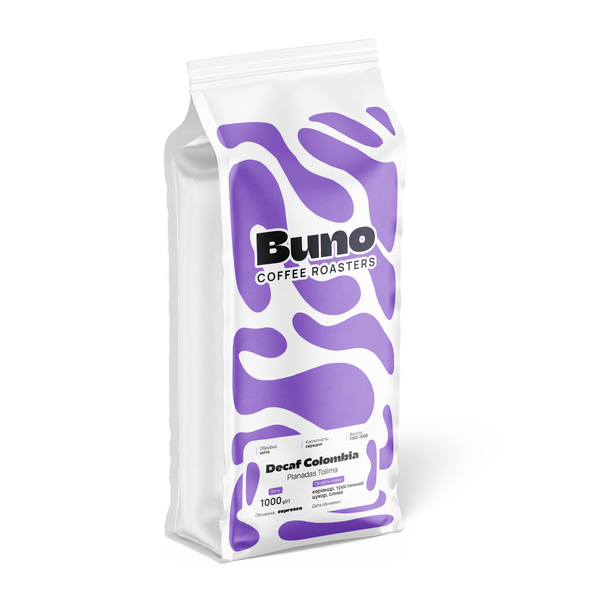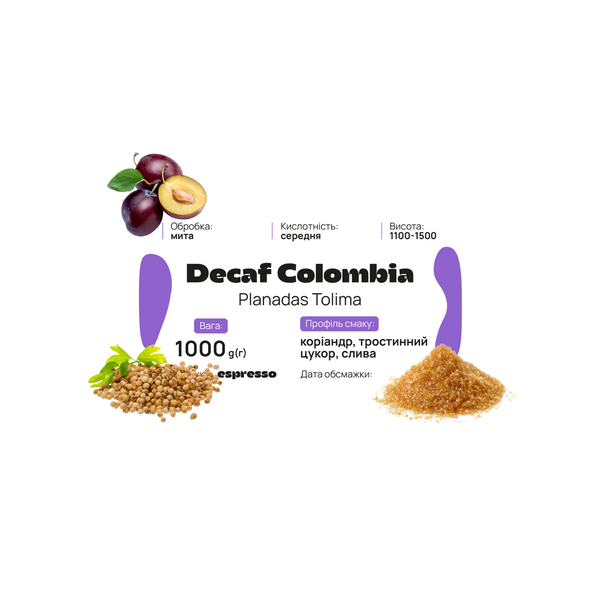|
Quantity
|
Total
|
||
|
|
|||
Decaffeinated Coffee
Decaffeinated coffee is a real lifesaver for those who can't drink regular coffee for certain personal reasons. Modern decaffeination technologies have advanced so much that decaffeinated coffee tastes just as good as regular coffee.
Colombia Decaf
Colombia Decaf is a wonderful coffee with notes of caramel, plum, coriander, and a light aftertaste. Caffeine is extracted from the beans by injecting carbon dioxide and displacing it under high pressure. This way, the caffeine is removed from the beans while the flavor characteristics remain unchanged. This coffee can be brewed by any method - espresso or filter. The caramel notes will unfold well when brewed in a cezve or a stovetop espresso maker. Use a temperature of around 95 degrees to bring out the fruity aspect of this coffee. Ground and whole beans should be stored in a tightly sealed package in a dark place without access to sunlight.
Coffee Growing in Colombia
Colombia is one of the world's leaders in Arabica production. This country is perfectly suited for growing high-quality beans. Proximity to the equator, a humid climate, and well-mineralized soil are the keys to a good harvest. Coffee in Colombia grows high in the mountains, at altitudes of over 2,000 meters above sea level. In such conditions, due to significant temperature fluctuations and low pressure, the berries mature longer, accumulating more fruit acids and natural sugars.
Coffee Production in Colombia
Due to its proximity to the equator, the harvest here is collected twice a year, which allows farmers to earn more due to the volume. In Colombia, coffee production is top-notch. Farms are usually small - up to 3 hectares, but most of them are equipped with advanced processing and drying stations. Coffee is picked by hand. To gather a bountiful harvest, a large number of workers is required.
A New Era of Colombian Coffee
Until recently, the production of naturally processed coffee beans was prohibited. Due to high humidity and rains during natural drying, the risk of souring or moldiness would increase. Recently, this ban was lifted, and the world has seen many diverse and unique lots of naturally processed Colombian coffee. A large number of immigrants from neighboring Guatemala and Nicaragua work on Colombian plantations. Colombia has embraced the culture of experimental coffee fermentations. Typically, peeled beans are enclosed in barrels previously used for alcohol or fermented together with cascara (coffee cherry), sometimes with special bacterial fermentation cultures added. Such coffee has a very unusual taste, featuring alcoholic notes and tropical fruit flavors.
Socio-Economic Situation in Colombia
Colombia is a developing country. The main problems are frequent civil wars and armed conflicts, as well as cocaine production. Until 2016, many farmers abandoned their plantations and fled to the cities, and the land where coffee was planted was used by criminals to grow cocaine. This situation significantly affected coffee bean production for a while, yet despite this fact, Colombia has maintained its global leadership in the production of high-quality Arabica for many years.






















